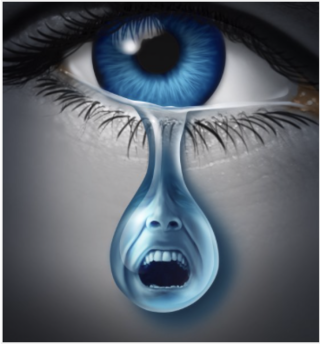Coronavirus Disease 2019
How to Prevent COVID-19 From Making You a Victim
Being resilient means controlling how much we let our traumas define us.
Posted May 7, 2020 Reviewed by Ekua Hagan

We’re hearing a lot about what in the COVID-19 pandemic is becoming "the new normal," including face masks, hand-washing, sheltering-in-place, and social distancing.
Unfortunately for tens of millions, even billions, the new normal also features tremendous anxiety, depression, grief, and financial hardship.
I can only offer empathy where it comes to financial hardship. I truly feel your pain as I know this hardship all too well. But I also know a few things about resilience that have helped me through some really tough times when I have experienced all of these emotional and mental health challenges.
For one thing, it’s unrealistic to expect yourself not to be changed by the trauma of losing a job, struggling to pay bills, worrying about a high-risk loved one’s health, or the new and widespread fear of simply going into a grocery store with unmasked shoppers. These experiences can rattle us to the core, make us question ourselves and our value, maybe even wonder whether life is worth all the effort it requires.
We’re also hearing a lot of talk about "getting back to normal." But resilient people understand that there is no such thing as going back to "how things used to be." We understand that there are only two options: Either stay stuck in the anxiety, depression, and fear by repeatedly rehashing the details of your trauma and the suffering it caused you. Or you move on.
By moving on, I am not suggesting you must forget what you’ve suffered, as if it’s even possible. No. I mean you deliberately choose—yes, it is a choice—not to allow the emotions and thoughts linked to the trauma control or define your present. You can't undo what was done, but you get to decide how big a part it plays in defining you now.
The important starting point is in how you frame the story you tell yourself about what the traumatic experience—in this case, the COVID-19 pandemic—"means" in the bigger story of your life, your relationships, your place in the world.
Instead of thinking of yourself as a victim—singled out by fate for cruel and unusual punishment—it’s important to recognize the difference between events and forces beyond your control, and how you handle and respond to them. You can tell the story either as a victim—or as a survivor. The first reflects a sense of powerlessness, the second resilience.
I am here to say from experience that even resilient people continue to face challenging times—like COVID-19. But I can also say from experience that it’s possible to give the pandemic the attention and priority it requires without letting it become the dominant, defining event and force in your life.
First, you do that by staying informed and practicing recommended safety precautions, as well as actively taking steps to care for yourself—including getting exercise, eating properly, and staying connected with others.
I learned how important these things are after my HIV diagnosis in 2005. After telling so many others’ stories as a reporter for so many years by that point, I had to learn how to tell my own story.
I had to decide what having HIV was going to mean to me. I had to choose how big or small a role I would allow my positive HIV status, and the things I had to do to care for my health, to play in my life and my sense of myself. I had to learn to understand that even with something as personal as a serious medical diagnosis, there had been events and forces beyond my control that brought me to that moment. That’s how I moved from wondering “why me?” to “why not me?” as I came to understand the traumas in my own past that had wounded me psychologically and put me at such high risk.
What things look like "on the other side" of COVID-19 for us as individuals, after we have a cure and/or preventive vaccine will depend largely on what they look like now, as we move through it. Either we take steps while it is happening to protect our mental and physical health and well-being, or we risk long-term harm.
Expecting to "go back" isn’t a smart personal reopening strategy. Try moving forward instead, but knowing you and everyone around you have been changed by the public health crisis. Live in the "new normal" even if it continues to mean masks and social distancing. It’s not a personal punishment. Focus on how you have pulled through this tough time and earlier tough times, on your resilience, rather than on all that has changed.
Just because COVID-19 has victimized all of us in one way or another doesn’t mean we have to live our lives as its victims.




